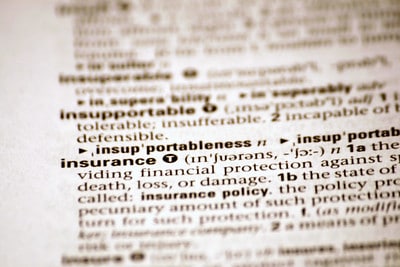
An unfair claim settlement practice is, frankly put, an attempt to swindle the claimant out of their rightful recompense. It is described in 31A-26-301.6 and 31A-26-303 as “knowingly misrepresenting material facts or…insurance policy provisions,” “attempting to use a policy application which was altered by the insurer without notice to…the insured,” or “failing to settle a claim promptly…where liability and the amount of loss are reasonably clear.” Other behaviors, when committed with suspect frequency, may constitute unfair settlement practices; these include habitual unresponsiveness, failure to adopt reasonable standards for efficiency, compelling litigation by deliberately offering less-than-reasonable settlements, declining disclosure of the grounds on which payments are made or denied, appealing awards favoring the insured, delaying investigations or payments with redundant paperwork, and anything else that may be classified as “misleading, deceptive, unfairly discriminatory, overreaching, or an unreasonable restraint on competition.”
Example Sentence
To deceive a claimant by sending them down irrelevant rabbit holes until the deadline for filing a claim has expired is to engage in a patently unfair claim settlement practice.
Case Study
In his exposé on corruption in insurance companies, Delay, Deny, Defend, Rutgers legal scholar Jay M. Feinman describes the various ways in which insurers wrongfully evade payment on just claims by dilly-dallying needlessly, contesting their clients’ narratives even when they have ample proof to support them, and prevaricating on the applications of policy provisions. Nataline Sarkisyan became a casualty of such unscrupulous conduct when, in 2007, the teenage leukemia patient died mere hours after her battle with CIGNA over a liver transplant procedure came to an end. Her liver had failed as a side effect of a bone marrow transplant she had received, and CIGNA claimed that the liver transplant wouldn’t help her when her family appealed to them for help.
Other Important Information
In 1997, the National Association of Insurance Commissions enacted the Unfair Claims Settlement Practices. The purpose of this act “is to set forth standards for the investigation and disposition of claims arising under policies or certificates of insurance issued to residents of [insert state].” Insurers are in violation and is now committing an unfair claims settlement practice if they do any of the following (for a full list click here):
- Knowingly informing claimants and insureds facts related to the coverages in question.
- Not communicating important information in regards to “claims arising under its policies.”
- “Not attempting in good faith to effectuate prompt, fair and equitable settlement of claims submitted in which liability has become reasonably clear”
- “Compelling insureds or beneficiaries to institute suits to recover amounts due under its policies by offering substantially less than the amounts ultimately recovered in suits brought by them”
- Not preforming a investigation before refusing to pay claims.
Image “Insurance” copyright by Alan Cleaver.